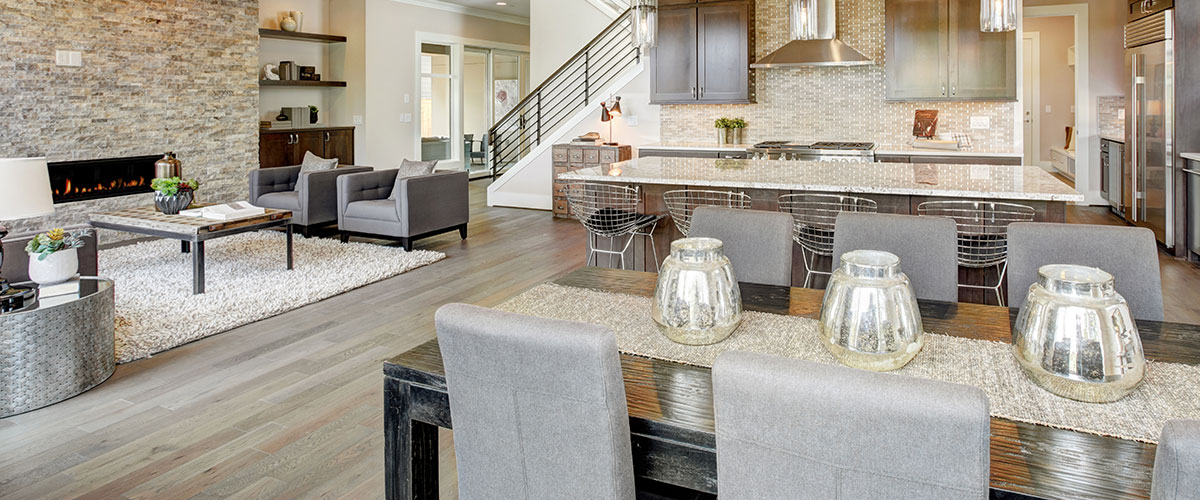When it comes to flooring, there are a lot of different options to choose from. You can go with vinyl, which is made to look like wood, or you can go with the real thing and install hardwood floors. Both have their pros and cons, but which one should you choose? In this blog post, we’ll compare vinyl flooring vs hardwood floors so you can make an informed decision about what’s best for your home.
What Are Hardwood Floors?

What Are Vinyl Floors?
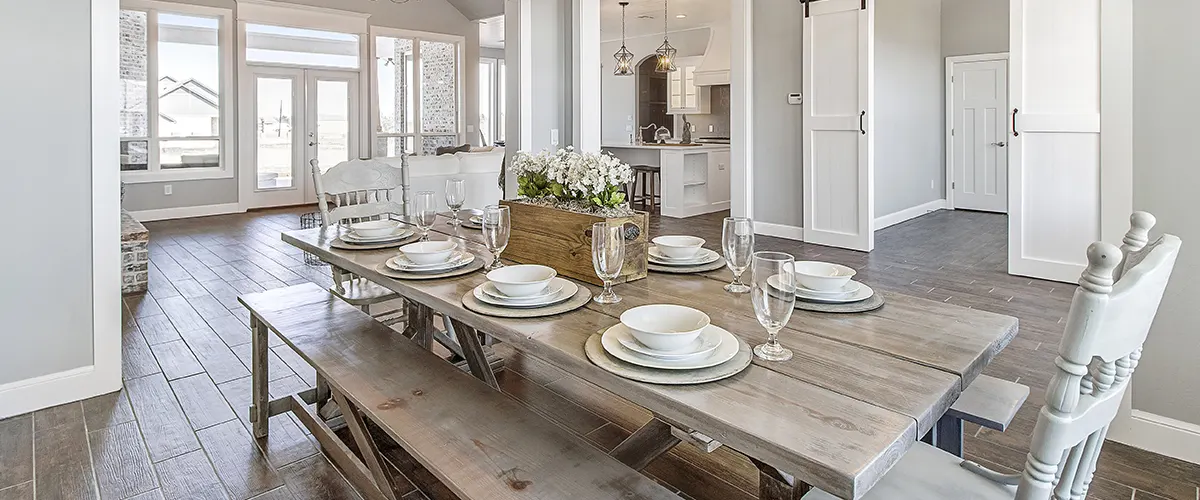
Vinyl Flooring vs Hardwood Flooring: Installation
As any home improvement enthusiast knows, there are a variety of flooring materials on the market, each with its own unique benefits and drawbacks. When it comes to installation, hardwood and vinyl are both popular choices for do-it-yourselfers. However, it’s important to keep in mind that vinyl is typically easier to install than hardwood. For best results, however, it’s usually worth enlisting the help of a professional installation team. Here’s a closer look at some of the key considerations to keep in mind when choosing between hardwood and vinyl flooring:
Installing hardwood floors requires a level wooden subfloor 4 or a cement foundation. If your subfloor isn’t perfectly level, over time the wood boards can warp or bend. Additionally, you’ll need to leave an expansion gap around the perimeter of the floor to allow for expansion and contraction due to changes in moisture levels. While these considerations can make hardwood installation more challenging for DIYers, many homeowners feel that the classic beauty and durability of hardwood are worth the extra effort.
In contrast, vinyl planks can be installed over most types of subfloors without the need for an expansion gap. This makes the installation process much simpler and faster.
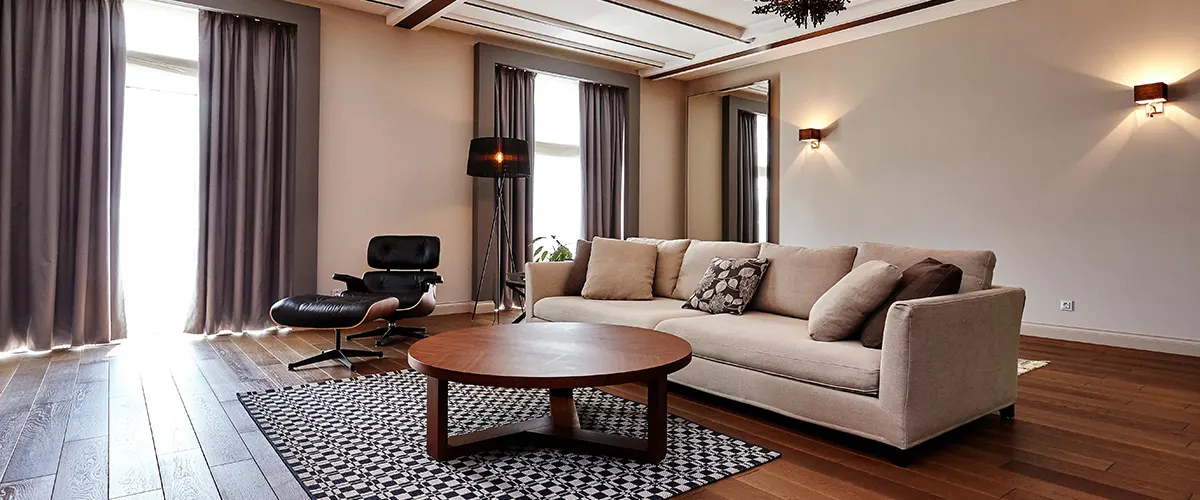
Vinyl Flooring vs Hardwood Flooring: Appearance
One common debate among homeowners is whether to choose solid hardwood floors or vinyl floors. Vinyl floors have come a long way in recent years and can now convincingly mimic the look of hardwood, but there are still some advantages to choosing the real thing.
For one, engineered hardwood floors offer a more attractive appearance. Since they are made from solid woods, they show the natural tones and grains of the wood, which can range from neutrals to reddish hues depending on the species of trees used.
In addition, wood flooring adds warmth to a room in both design and reality; natural wood is a good insulator, so rooms with hardwood floors tend to be warmer than those with vinyl floors. Another advantage of hardwood floors is that they are more durable; with proper care, they can last for decades, while vinyl floors may start to show wear after just a few years.
Of course, vinyl floors have their own advantages; they are generally cheaper than hardwood floors and easier to install, and they have a softer, more sound-absorbent quality than wood due to their cushioned backing. Ultimately, the decision of which type of flooring material to choose depends on the specific needs and preferences of the homeowner.

Vinyl Flooring vs Hardwood Floors: Maintenance
Vinyl floors are one of the easiest flooring types to maintain. Regular sweeping and mopping with the recommended cleanser will keep it looking its best. You can also vacuum with the brush feature disengaged. In order to avoid wear in high traffic areas, you may want to use area rugs or runners. Keep in mind that damaged luxury vinyl planks cannot be repaired and will need to be replaced.
Wooden floors require slightly more maintenance than vinyl; they should be swept or dusted often to prevent scratches from small dirt particles. The homeowner should use products specifically designed for wood floors to prevent moisture from damaging the wood. Generally, engineered hardwood flooring will need to be refinished every ten years; in some cases, it may also need to be sanded down and re-stained. Like vinyl, damaged wood cannot be repaired and will need to be replaced.
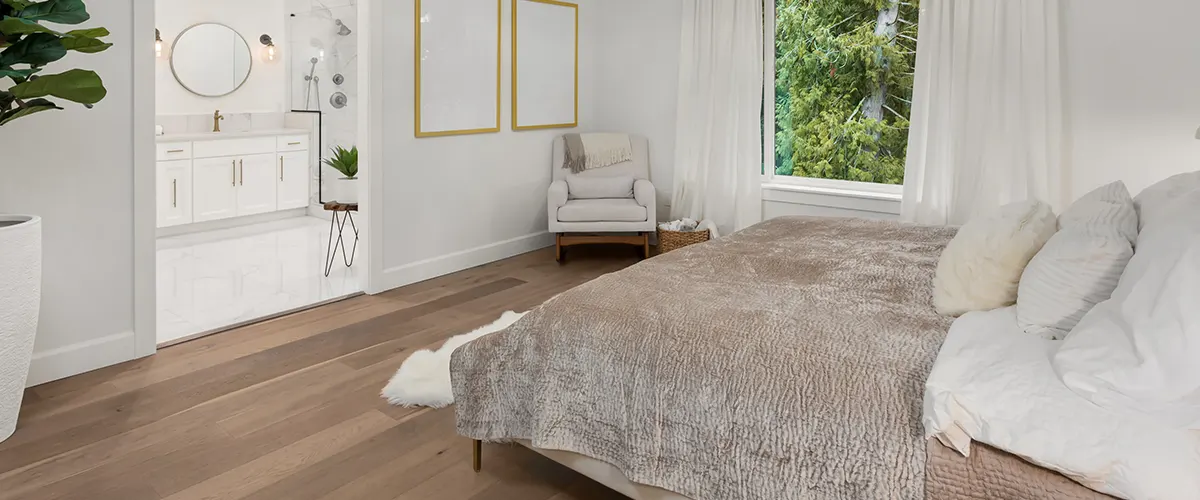
Vinyl Flooring vs Hardwood Flooring: Sustainability
Hardwood flooring is an attractive and durable option for many homeowners. In addition to its beauty, hardwood floors have a number of other advantages. One key advantage is that hardwood floors are made from a renewable resource. Trees can be replanted and regrown, which means that the wood used for hardwood flooring can be replenished.
This is not the case with vinyl flooring, which is made from PVC resin. As a result, hardwood flooring has a lower environmental impact than vinyl which is more or less a synthetic material. Another advantage of a wood floor is that it can be refinished and resealed, which extends its lifespan. Vinyl flooring cannot be refinished, so it typically needs to be replaced more often than hardwood. Real wood flooring is a more sustainable choice than vinyl for these reasons.
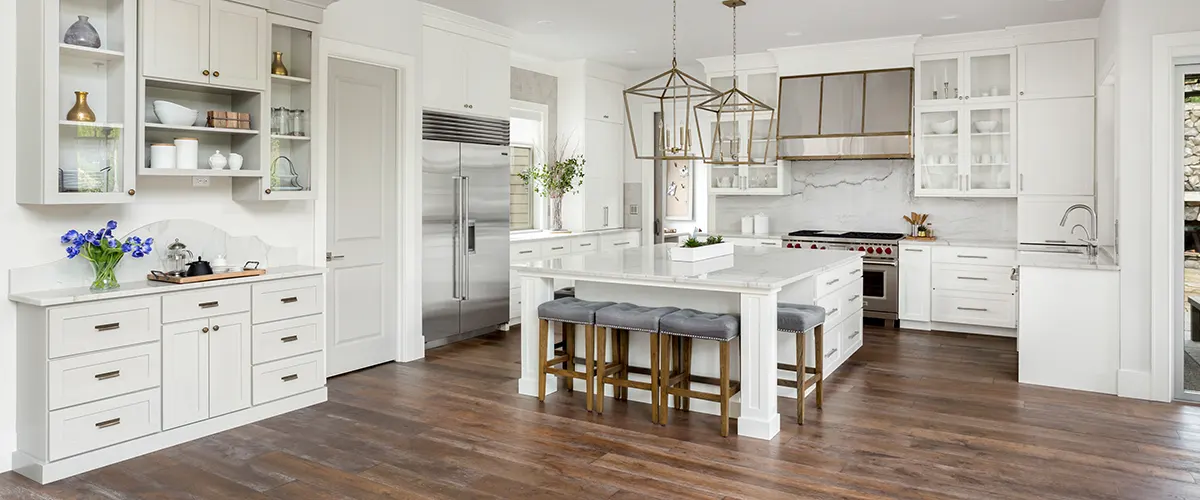
Conclusion
So, what’s the verdict? Vinyl or hardwood floors? If you’re still undecided, that’s okay! We can help you make a decision. Both vinyl and hardwood have their own unique benefits, so it ultimately comes down to your specific needs and wants. Give us a call and we’ll chat about your options – we’d be happy to help you choose the perfect flooring for your home.
